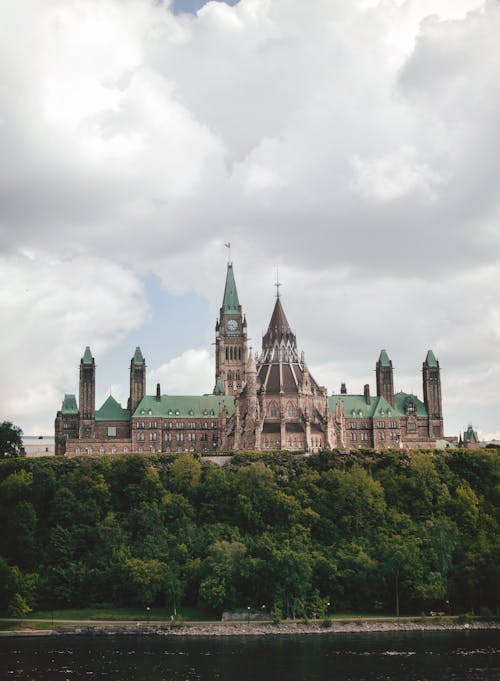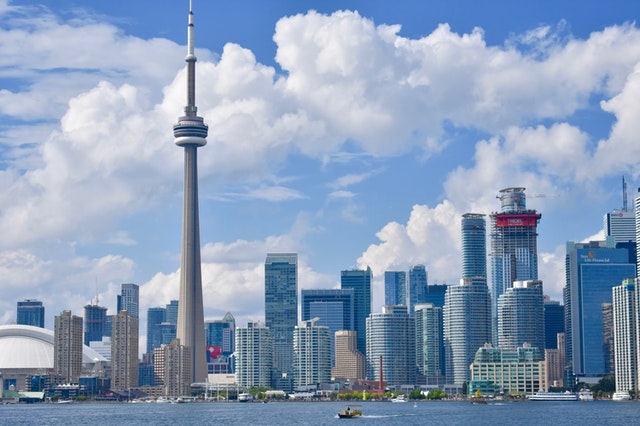Table of Contents
Canada has long been one of the most famous study destinations for MBA students, at least it has been for me. If you want to make a name for yourself on a global scale, you’ll need to refine your organisational qualities, compelling persuasion, critical reasoning, and decision-making ability, and there aren’t many places like Canada to do so I believe.
Canadian university degrees are nationally recognised and strongly regarded by overseas employers. The top 50 research and technology institutes in the world include the University of Toronto, the University of British Columbia, McGill University, and the University of Waterloo.
Canada is gaining popularity for its high-quality schooling, world-class universities, unique scholarships, low cost, and language versatility. Do you know, unlike Germany or France, there is no language barrier in Canada if you pursue an MBA in Canada? Furthermore, student visa processing times are shorter than in countries such as the United States and Germany, rendering it the most attractive destination for foreign students, ain’t that a win-win situation?

Why Pursue an MBA?
The Master of Business Administration (MBA) is a globally recognised degree that prepares students for potential careers. It emphasises the development of both industry-specific expertise and high-demand soft skills such as teamwork, patience, and leadership abilities.
An MBA degree will launch a technical career in a variety of industries and practical divisions. The country offers a globally perceived degree, as well as a diverse range of MBA courses such as Management, Accounting, Finance, HR, HealthCare, Operations, and additional courses such as Organizational Management, Macroeconomics, Computer Information Systems, and Marketing Management. The programme was created to bring together the academic and functional elements of the topics. You can learn to plan, suggest, coordinate, and respond to daily challenges and that’s one of the biggest reasons to study MBA in Canada.
Qualification Models for MBA in Canada
Here are the details of the entrance exam for MBA in Canada.
- A successful GMAT Graduate Management Admission Test/GRE- Graduate Record Examination ranking, as well as a minimum of 2.5 years of job experience, are needed by Canadian Business universities. To be admitted to these colleges, you must have a graduate degree from an authorized university or college; non-native candidates must also take the TOEFL Test in English as a Foreign Language/IELTS- International English Language Testing System.
- The Graduate Management Entry Test is the preferred entrance exam among most Canadian enterprise and management programmes. It includes an appraisal of critical writing, integrated logic, quantitative reasoning, and verbal reasoning.
- GRE scores are also approved for entry to MBA programmes as well. GRE tests are classified into two groups. The GRE general examination assesses students’ verbal logic, quantitative reasoning, and analytical writing skills, while the GRE topic test assesses students’ awareness of a specific area of research such as Biology, Chemistry, Literature in English, Mathematics, Physics, and Psychology.
- TOEFL and IELTS also assess English language abilities in understanding, listening, chatting, and writing.
Aside from these entrance exam results, a Bachelor’s degree, college records, letters of reference, and an essay or declaration of intent explaining why you choose to obtain an MBA degree, as well as technical credentials, would be required to qualify for an MBA programme.
You can also read A Complete Guide To MBA Abroad For Indian Students if you are an Indian student wanting to know more about MBA abroad.
Top MBA Universities In Canada
To make it easy for you, I have listed a bunch of top universities that you can think of as prospects for your MBA.
- Rotman School of Management, University of Toronto
- Desautels Faculty of Management, McGill University
- Schulich School of Business at York University
- Ivey Business School at Western University
- HEC Montréal is a university in Montréal, Canada.
- Smith School of Business at Queen’s University
- Alberta Business School
- Sauder School of Business, University of British Columbia
- John Molson School of Business at Concordia University
- Sobey Business School
- Goodman School of Business at Brock University
- Sprott School of Business at Carleton University
- DeGroote School of Business at McMaster University
- The Memorial University of Newfoundland
- Ted Rogers School of Management at Ryerson University
- Beedie School of Business, Simon Fraser University
- The University of Thompson Rivers (TRU)
- Laval University
- Canada West University (UCW)
- The University of Calgary’s Haskayne School of Business
- The University of Manitoba’s Asper School of Business
- The Saint John Campus of the University of New Brunswick
- Odette School of Business at the University of Windsor
- Telfer School of Management, University of Ottawa
- The University of Wilfrid Laurier

Cost of MBA in Canada
MBA programmes in Canada range from one to two years in length and have excellent returns on investment. Tuition costs at Canada’s top MBA universities vary from CAD 22,000 to CAD 120,000. However, the overall cost of earning an MBA degree from one of Canada’s best colleges differs after factoring in living costs, books, equipment, and so on.
What are the benefits of going to Canadian University for MBA?
MBA in Canada has grown in popularity in recent years. Let us have a look at some of the factors that render Canada the favourite destination for Indian students:
Universally Perceived Degrees
Canadian university degrees are nationally recognised and strongly regarded by overseas employers. The top 50 research and technology institutes in the world include the University of Toronto, the University of British Columbia, McGill University, and the University of Waterloo.
Low Education and Living Costs
Despite becoming a developing nation, the expense of higher education in Canada is lower than in the rest of the world. Canada has a clear benefit in that it can deliver a high-quality college at a low tuition rate.
Canada is an attractive destination owing to its low cost of living in contrast to the United States and the United Kingdom, as well as its protection, prosperity, and multiculturalism.
High Standard of Living
Since 2004, Canada has regularly rated in the top ten countries in the United Nations Quality of Life Index. Canada outperforms the rest of the world in terms of schooling and qualifications, work and wages, health, protection, environmental sustainability, income, and subjective well-being.
Migration Amicable Strategies
Canada is widely regarded as the world’s most welcoming country to immigrants. Its initiatives are structured to promote immigrants from all over the world. This is one of the most compelling reasons for doing an MBA in Canada. It provides students with a three-year post-study stay opportunity that can easily contribute to immigration later on.
Living on Campus
Campuses are hive-like hubs with extracurricular interaction coordinated by groups catering to a wide range of desires. Canadians enjoy athletics, and university campuses demonstrate this enthusiasm through intramural, varsity, and intercollegiate tournaments.
Campuses are hubs for classes in painting, creative expression, literature, and theatre. Students volunteer in the city by doing things like voluntary care, mentoring, training seminars, and neighbourhood campaigns.
The Best Countries For MBA You Need To Check Out! – A blog for students that are still confused about which country to choose, you should definitely give this one a read.











0 Comments